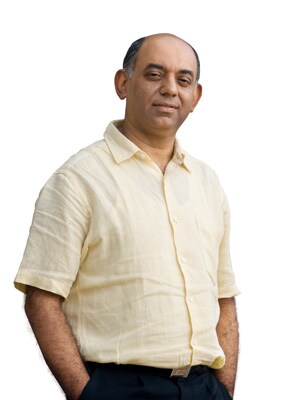
Atul Churamani: The Sound of Music
India is one of the few growth markets for music. What's needed now is a robust business model, industry veteran Atul Churamani tells Forbes India
Atul Churamani
Age: 48
Profile: Head of content, Onmobile. Been with Saregama for eight-and-a-half-years and responsible for the company’s digital initiatives and music publishing activities
Career: Started with Magnasound in 1988 and worked with Virgin Records for four years before moving to Saregama India
Education: Economics graduate, Sriram College of Commerce, Delhi
Interests: Writing, reading, music, movies, cricket
How do you look at your last eight years at Saregama?
It has been a fantastic journey. I joined in 2002, when there was no digital business, no publishing business and no events business. The physical business was dwindling but it was robust. Today, one of the most important businesses for the company is the digital business which I set up eight years ago. We probably are the only company that built a structured business in publishing. We did this by building a network of sub-publishers across the globe. Later, we went ahead and did some interesting deals. We did a deal with The Black Eyed Peas for ‘Don’t phunk with my heart’ where 20 percent of the song is owned by Saregama. Events have become a major source of revenue.
How did you monetise the Saregama catalogue?
It is one of the finest catalogues in the country or even internationally. It has works from 1902 since the first recordings and has everything from classical to films. While it was being exploited in the physical format, the real value for the catalogue worked for us when we went digital. Selling them in the digital space was easier. In Germany, they used a Punjabi song for the Kit Kat commercial.
What has it been like to work with different artists?
We have worked with all kinds of artists. Lata Mangeshkar, Shaan, Colonial Cousins and many more. We never had a problem with any artist. It is important to understand the artist and his ambition. My best albums are those where we have understood the artists and have worked with them to meet their ambitions. It is not necessary that every album we do is a success. Look at Hard Kaur. Her only album to date is with Saregama, which was done in 2007 when she had a song called ‘Gallasi’. She was not really known outside [the] UK. We did her album. The album did not do well but she came into the limelight. Later, she got a hit with Johnny Gaddar. But I’m really proud of the last album that I did with Saregama. It is called Naina Lagai Ke by Asha Bhosle and Shujaat Khan.
So what will be your role at Onmobile?
Onmobile is a technology company that powers platforms for mobile companies. My work will basically involve licensing of content to Onmobile. This company works with almost all the leading mobile companies in the industry. My job will be to engage the music industry with Onmobile. They have 23 companies in the international market and since there are Indians across the globe, we would like to reach out to them as they are all looking for Indian music.
Music sales across the world are falling. But what is happening in India?
I’m very optimistic about the Indian music industry even if the global sale of recorded music is going down every year. In about seven years, since 2004, global music sales have halved from $32.8 billion to $15.5 billion. The music industry all around the world has been losing market continuously. But last year, India was one of the three countries where recorded music saw good growth of around approximately 20 percent. The overall content in the music industry is growing. There are more people listening to music than ever before. We need to figure out a way to monetise this. I’m sure the music industry will figure out a robust business model.
(This story appears in the 30 November, -0001 issue of Forbes India. To visit our Archives, click here.)





